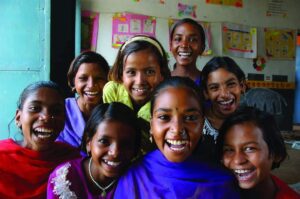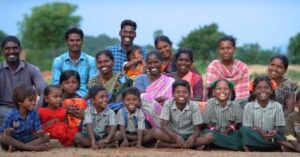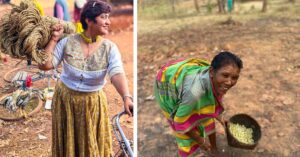This Initiative Is Helping 4 Lakh Adolescents Break Barriers Through Sport
Using sports to teach crucial life skills, Magic Bus Foundation India is playing a significant role in impacting 4,00,000 adolescents.
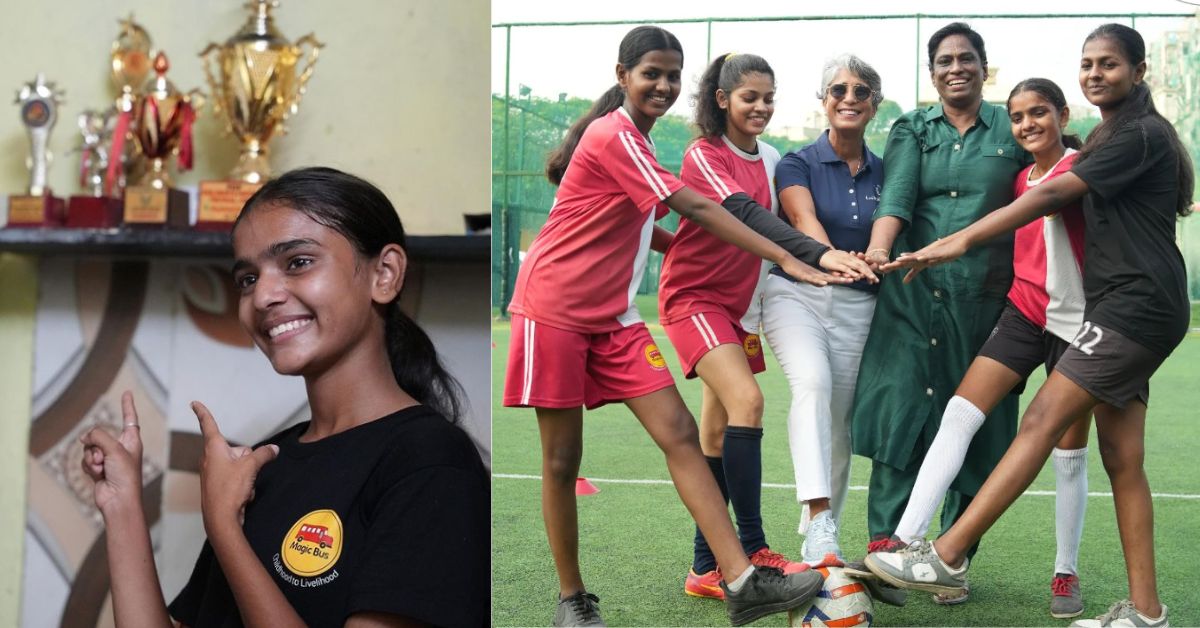
There was a time when Vidya Tamkhane was afraid to even step out of her house.
When she was in Class 10 back in 2013, her brother took her to the playground and introduced her to kabaddi. She resisted participating at first, but he encouraged her to play. It wasn’t long before she fell in love with the game, she recalls, and the trajectory of her life changed.
Instead of simply accepting that she would get married when she reached a certain age, she became determined to make her own decisions. Last year in 2022, a few years after she got her undergraduate degree, she interviewed with Magic Bus India Foundation and was hired as a kabaddi coach in Chandrapur, Maharashtra.
“The [traditional] thinking is that boys should work because they have a family to feed, while girls are expected to get a good-looking husband with a government job. But my brother changed this outlook and supported me,” Vidya says.
Her job with Magic Bus inspired her to venture even further outside her comfort zone. She acquired the skills to effectively communicate with school principals about the value she gained from the sports-for-development and life skills education programmes of Magic Bus, and to persuade parents to enroll their daughters.
“Permission from parents is very difficult at times,” she explains. “They feel [it is] unsafe. It was very difficult for me to win their trust, but I did it.”
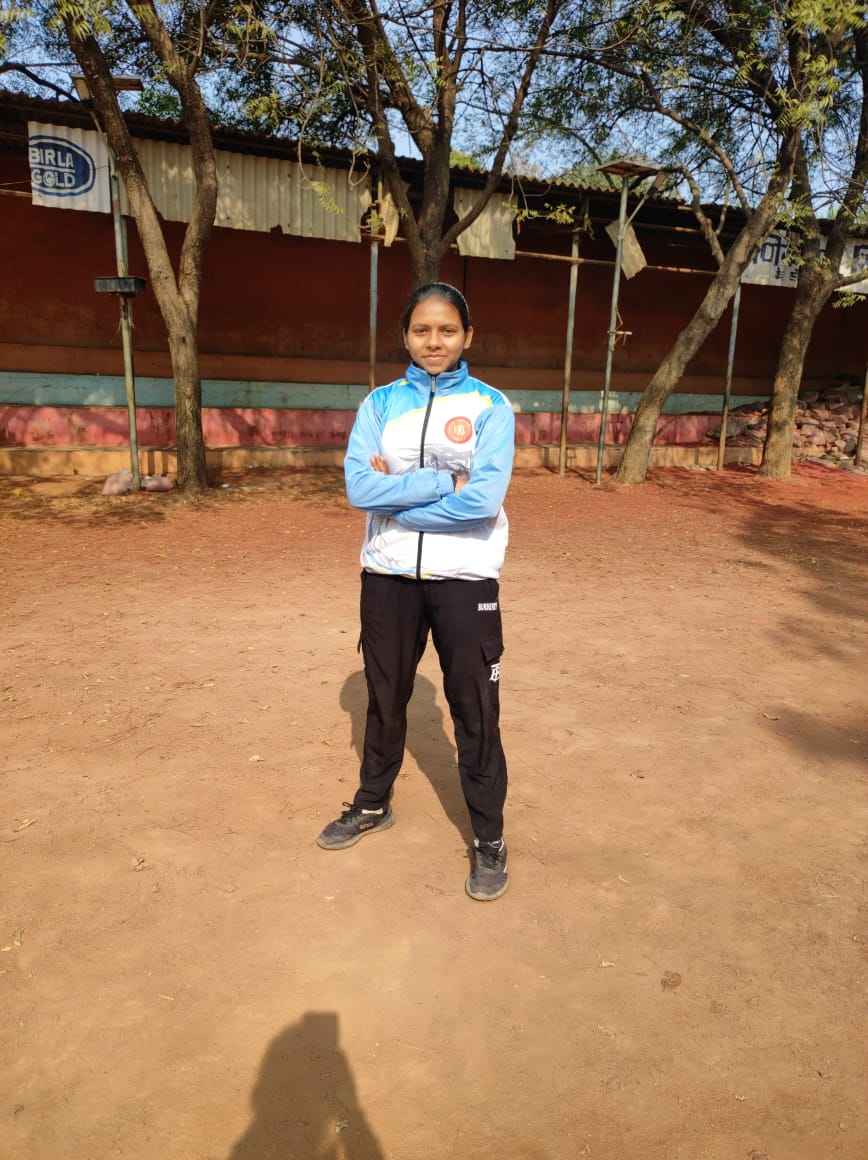
Vidya was one of six female kabaddi coaches from similar backgrounds and ages (between 23 and 25) who joined Magic Bus around the same time. The other coaches were Komal Pachare, Nilam Verma, Shital Borkar, Poornima Chandekar and Reema Khushwah, who shared a common goal — to empower girls through sports, just as they were.
All of them are part of Magic Bus’ School Completion and Livelihood Enablement Programme in Chandrapur. The purpose of the programme is to train teachers to deliver life skills education to adolescents from Class 6 to Class 10 in collaboration with the government. Operating in Chandrapur proved to be a success, leading to Magic Bus initiating a partnership with the government to further expand their impact.
Magic Bus, founded by Matthew Spacie back in 1999, has impacted the lives of more than one million adolescents over the past two-plus decades. At present 3,94,206 adolescents are enrolled in their programmes across 2,770 schools.
Reflecting on the initial days, he says, “About 30 years ago, when I arrived in Mumbai, I couldn’t ignore the stark contrast in living conditions within the city. On one side, there was a sizable middle-class population, living fairly ordinary lives. On the other side, there was a parallel reality of people living in poor conditions.
As an outsider, this divide deeply affected me, compelling me to respond in some way. However, there was a personal connection that played a significant role in shaping my vision for Magic Bus.
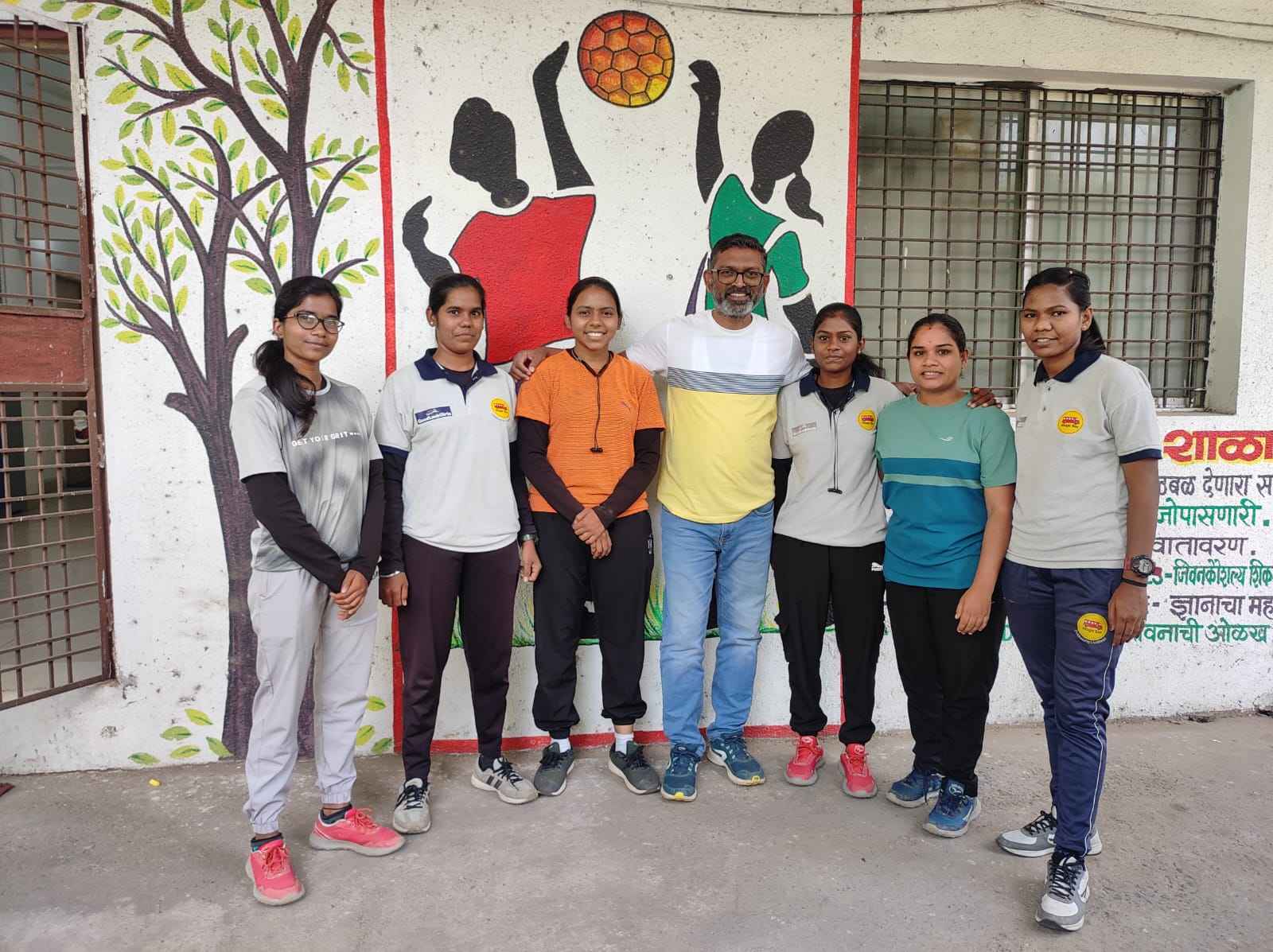
Sports for development
Magic Bus India Foundation is a pioneer in the life skills education and skilling sector in India. Their mission, as Matthew states, has always been to help young people. “When we started Magic Bus, our aim was to help young people thrive and find happiness and success. We took them on mountain trips and engaged in various activities to boost their resilience and happiness. Our community-based mentors played a crucial role, serving as role models who had conquered similar challenges. For me, the importance of mentors became evident early on. Within five years, our approach transformed from me playing rugby with young men at the Gymkhana to engaging 10,000 adolescents and young people across Mumbai in a life-changing programme led by mentors from their own communities.”
Now, the organisation implements a sports and activity-based life-skills programme with the goal to equip adolescents with essential life skills and facilitate a smoother transition from school to the workforce. It operates in 24 states across 72 districts in India.
Magic Bus has played a pioneering role in introducing sports-for-development and life skills education in India and Southeast Asia. “Currently, we empower individuals to acquire essential life skills through sports. By gathering on the playground, we especially empower girls to assert their presence in a domain traditionally reserved for boys. We aim to challenge gender stereotypes, encouraging girls to break barriers while fostering equal participation from boys,” says Jayant Rastogi, Global CEO, Magic Bus India Foundation.
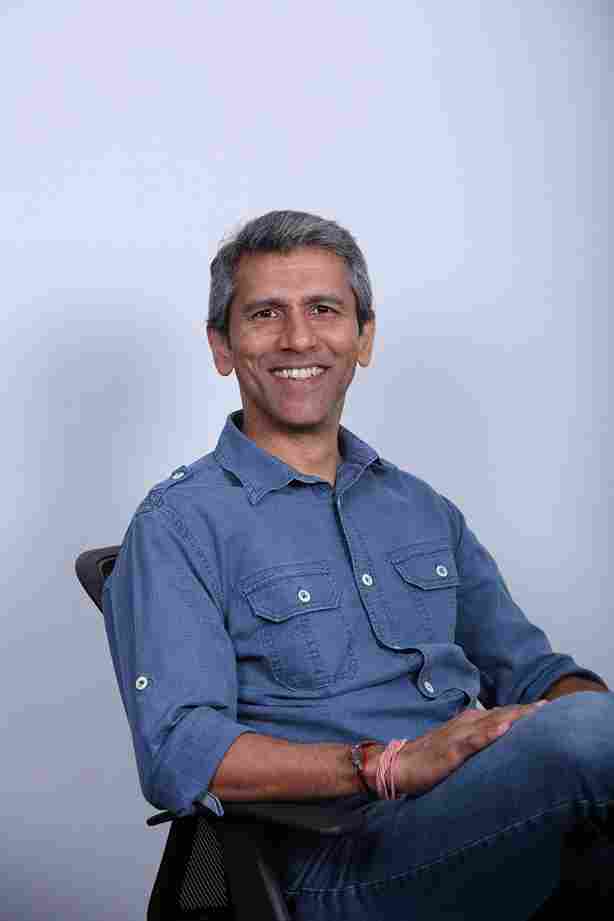
The organisation shows that adolescents in its programmes improved their school regularity by 21.8%, a 31% increase in perceived self-efficacy, and a 34.7% boost in resilience.
In Baddi, Himachal Pradesh, a place where Magic Bus has actively engaged since 2015, a significant milestone was reached in March 2021. The organisation introduced a sports programme exclusively tailored for girls. Divided into two distinct phases from December 2021 to March 2023, this programme carries a primary objective of empowering girls aged 11 to 18 through the influence of sports.
According to Vivek Sharma, the programme manager, 10,000 girls were given sports sessions each in kabaddi or cricket. The girls also took part in tournaments within their schools. Some of them were then chosen to compete in district, state, and national tournaments.
The objectives of the programme also include the holistic development of the participants, which includes communication, socio-emotional learning, and education.
Vivek says they were able to succeed in Baddi because Magic Bus had earned the community’s trust first. “We had been planning since 2015. We worked with the girls, the boys and their parents and sensitised them [to the idea of a girls’ sports programme].”
The programme has also actively addressed common concerns raised by parents regarding the safety and expenses of the girls participating in tournaments held in larger cities. Recognising these concerns, the programme takes responsibility for the girls’ expenses and ensures their safety by arranging for accompanying coaches during their travel. In certain cases, the programme even covers medical expenses and provides first aid kits.
Vivek emphasises, “In this way, we address any doubts community members may have about the program, ensuring that their questions are answered satisfactorily.”
Matthew adds, “Initially, when I played rugby with young people, I believed that helping them secure jobs would lead to economic stability. However, we realised they weren’t ready for a structured work environment. This setback inspired our “Childhood to Livelihood” programme. We understood that getting them jobs was only half the battle; keeping them employed required equipping them with the right skills and guidance to enter the workforce. It’s where they grasp the value of work, learn skills beyond their chosen profession, and evolve into role models, actively breaking the cycle of poverty for their families and the entire community.”
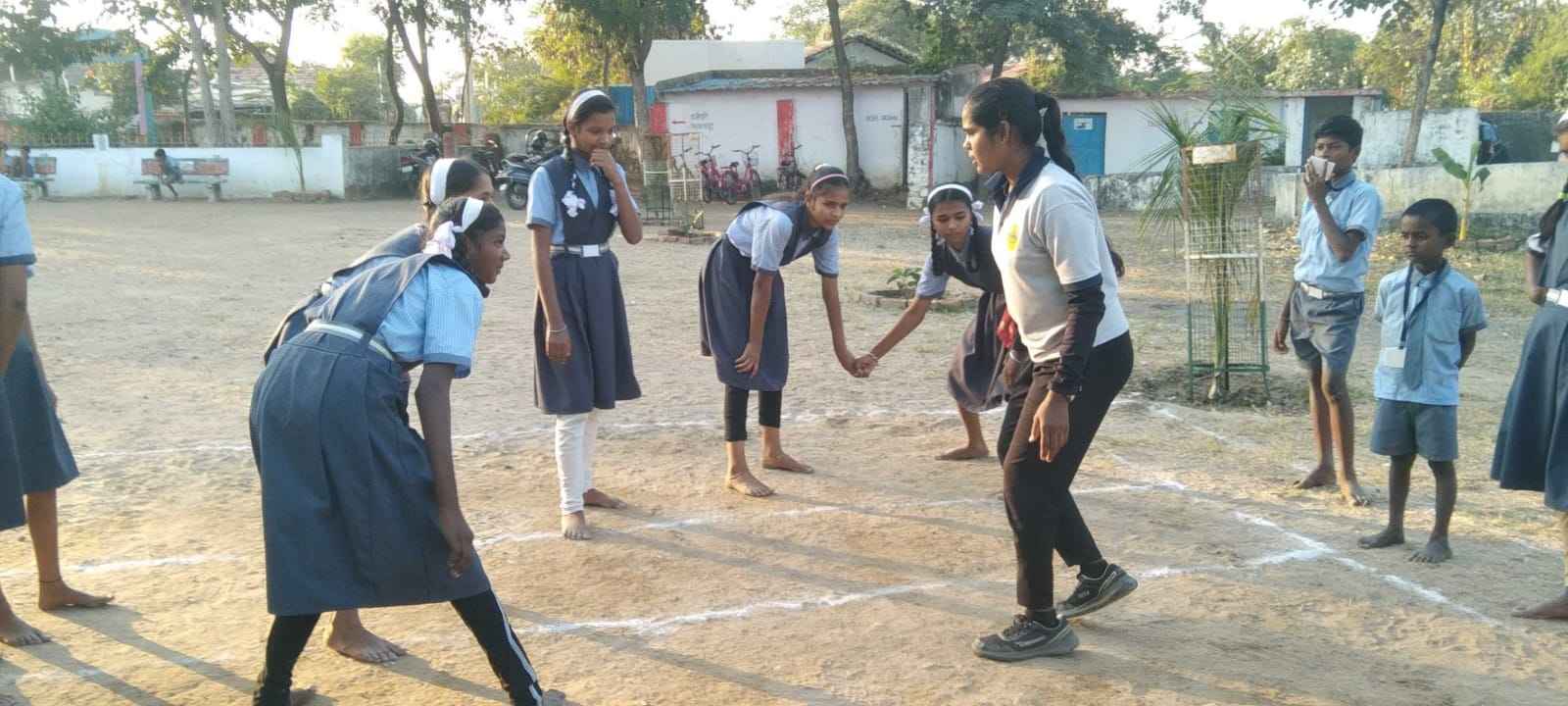
‘Showed me the right path’
Vivek points to the example of Prachi, a young girl who had previously never left her village. Last year she travelled to a national athletic competition in Ranchi, Bihar. “Her parents were in complete shock that a girl who never left the home before has performed in this kind of event,” he says. “They said, ‘If you had not tried with our child, she would never have reached this level.’”
Another girl who has benefitted from Magic Bus’ interventions is 17-year-old Bittu Kumari. She joined the programme in 2017 as a Class 8 student and says she learned life skills through volleyball and kabaddi (volleyball has since been replaced with cricket). According to her, Magic Bus helped her make the optimum use of her talent as a kabaddi player. “Now I am a state-level kabaddi player, and I want to play at the national level also,” she says. “If I had not found Magic Bus, I would not have made it this far. They showed me the right path.”
In the process, she has gone from being scared to speak to people to having the confidence to speak to anyone. “Magic Bus taught me communication skills, gave me confidence, taught me what is right and what is wrong,” she says.
Last year Magic Bus appointed Bittu as one of their community coordinators. While her ambition is to become an IPS officer, she also plans to play kabaddi for as long as she can. “My parents give me full support. They say, ‘When my daughter is on the right track, why would I stop her?’”
For Matthew, these stories motivate him further. “The emotional aspect of our work reminds me of our mission’s importance and the need to stay rooted in the communities we serve. By understanding their struggles and empathising with their challenges, we ensure our programmes remain relevant and effective. This powerful motivation drives our commitment to doing right by them and striving for continuous improvement.” If you found our stories insightful, informative, or even just enjoyable, we invite you to consider making a voluntary payment to support the work we do at The Better India. Your contribution helps us continue producing quality content that educates, inspires, and drives positive change. Choose one of the payment options below for your contribution- By paying for the stories you value, you directly contribute to sustaining our efforts focused on making a difference in the world. Together, let’s ensure that impactful stories continue to be told and shared, enriching lives and communities alike. Thank you for your support. Here are some frequently asked questions you might find helpful to know why you are contributing?

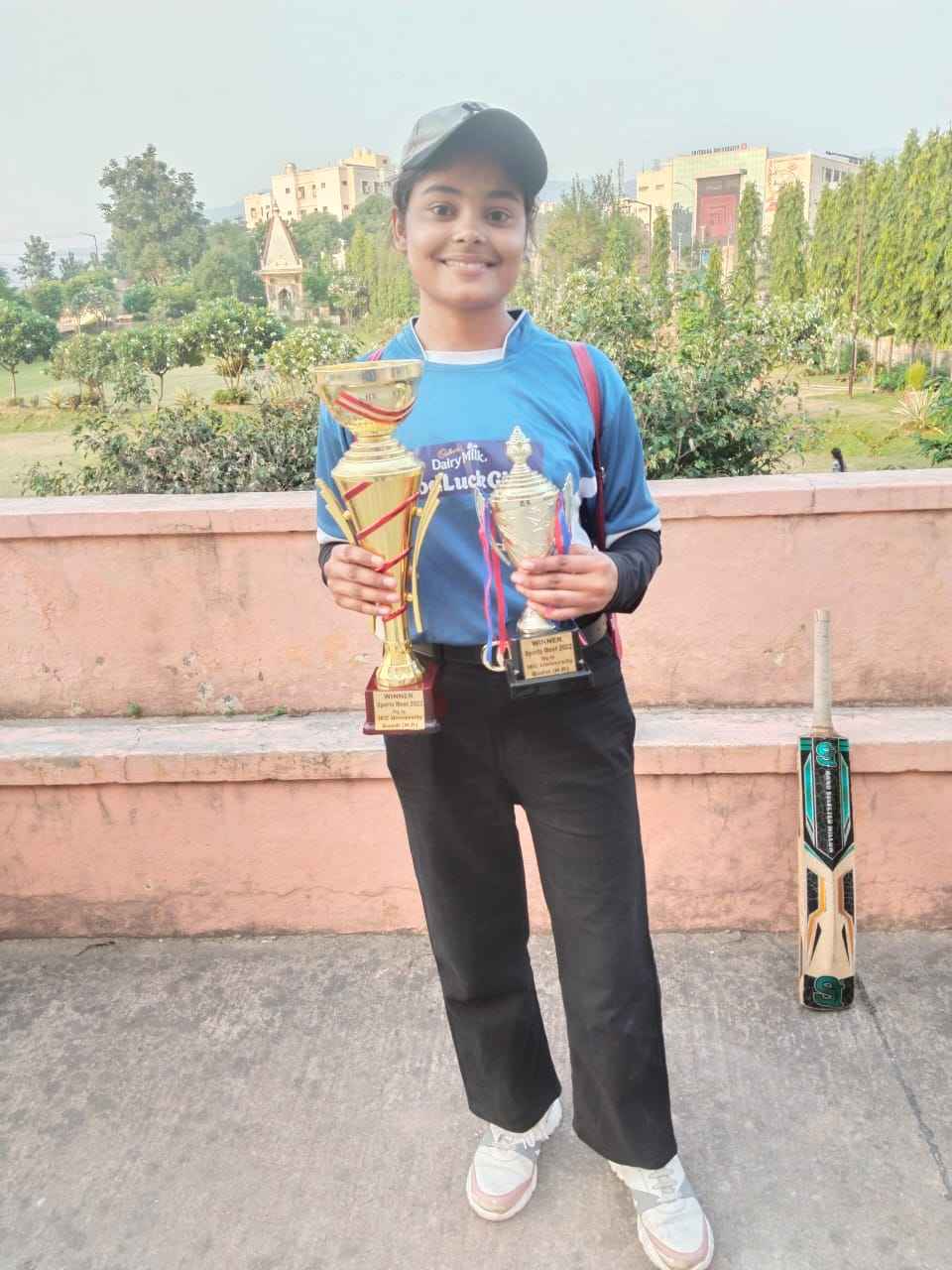
This article is contributed by the Magic Bus India Foundation.
(Edited by Padmashree Pande; All photos courtesy Magic Bus India Foundation)
This story made me
-
97
-
121
-
89
-
167





